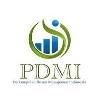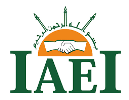Is Halal Certification Able to Affect Consumer Behavior in Buying Food Products?
Abstract
This research is motivated by the habits of the people of Indonesia, which often use the products being sold but need to pay more attention to matters of halal certification, which often does not include a halal label. These habits can endanger everyone because, in the end, everyone will be free to sell goods or food and can buy anything regardless of the halalness of a product, especially food products and other products. This study uses a qualitative literature study method, namely by looking at the phenomena that occur and previous research. This research will show how consumers can behave to improve their awareness when buying a product closely related to halal, be it a food product (which is consumed) or other products (used or used). This research aims to make consumers aware that they still prioritize halal rather than interest in a product that will be purchased, used, and even consumed, whose benefits are not only for the individual but for everyone or the good of many people. Furthermore, by increasing awareness, we can carry out our daily lives to be more actual and more on target while remaining in the corridors of goodness and benefit.
Keywords: Awareness, behavior, food product, halal.
Full Text:
PDFReferences
Al-Bukhari, Abu Abdullah Muhammad bin Ismail. Ensiklopedia Hadits; Shahih al-Bukhari 1, Terj. Masyhar dan Muhammad Suhadi. Jakarta: Almahira. 2011.
Rizal, Fitra. "Penerapan ‘URF Sebagai Metode dan Sumber Hukum Ekonomi Islam." Al-Manhaj: Jurnal Hukum dan Pranata Sosial Islam Institut Agama Islam Sunan Giri Ponorogo Vol. 1 No. 2. 2019.
Saleh, Abdul Mun’im. Hubungan kerja Usul al-Fiqh dan al-Qawaid al-Fiqhiyah Sebagai Metode Hukum Islam. Yogyakarta: Nadi Pustaka. 2012.
Sarjana, Sunan Autad. "Konsep ‘Urf dalam Penetapan Hukum Islam." Jurnal Tsaqafah, 2017.
Sayyid, Sabiq. "Fikih Al-Sunnah." Bandung: Al-Ma’arif, Cet. Ke-10, Jilid 12. 1996.
Shamsudin, Mad Nasir, Yodfiatfinda, Zainal Abidin Mohamed, Zulkornain Yusop, and Alias Radam "Evaluation of market competitiveness of SMEs in the Malaysian food processing industry." Journal of Agribusiness Marketing, 2011, pp.1-20.
Syafe’I, Rachmat. Al-Hadits: Aqidah, Akhlak, Sosial dan Hukum. Bandung: CV Pustaka Setia.
Zulaekha Siti, Kusumawati Yuli, Halal Dan Haram Makanan Dalam Islam, Publikasi Ilmiah UMS, Vol. 17, No. 01. 2005.
Charity May Lim, “Jaminan Produk Halal di Indonesia (Halal Products Guarantee Indonesia)”, Jurnal Legislasi Indonesia, Vol. 14, No. 01. 2017.
Wiku, Andisasmito, Audit Rumah Sakit, (Jakarta: Raja Grafindo Persada, 2008).
Al-Bara. Nasution Rahmayani. ”Analisis Pengaruh Label Halal Pada Produk Makanan Terhadap Keputusan Pembelian Konsumen Masyarakat Kota Medan” INTIQAD: Jurnal Agama Dan Pendidikan Islam, ISSN 1979-9950(print), ISSN 2598-0033 (online), DOI: https://doi.org/10.30596/intiqad.v10i2,1987. 2018.
Darmalaksana Wahyudin. Metode Penelitian Kulitatif studi Pustaka dan Studi Lapangan, Pre-print Digital Library, UIN Sunan Gunung Djati Bandung. 2020.
Sugiyono, Metode Penelitian Pendidikan Pendekatan Kuantitatif, kualitatif, dan R&D. Bandung: Alfabeta. 2014.
Samsuri, Warto. “Sertifikasi Halal dan Implikasinya bagi Indonesia”. Al Maal: Journal of Islamic Economics and Banking, Vol. 2 No.1 2020.
Widjoyo Putro Shandy, Semuel Hatane, Karina Rizky. “Pengaruh Kualitas Layanan Dan Kualitas Produk Terhadap Keputusan Pelanggan Dan Loyalitas Konsumen Restoran Happy Garden Surabaya, Jurnal Manajemen Pemasaran” Vol.2, No.1. 2014.
DOI: http://dx.doi.org/10.30829/jombi.v3i02.10386
Refbacks
- There are currently no refbacks.
Copyright (c) 2021 Muhammad Hasby







